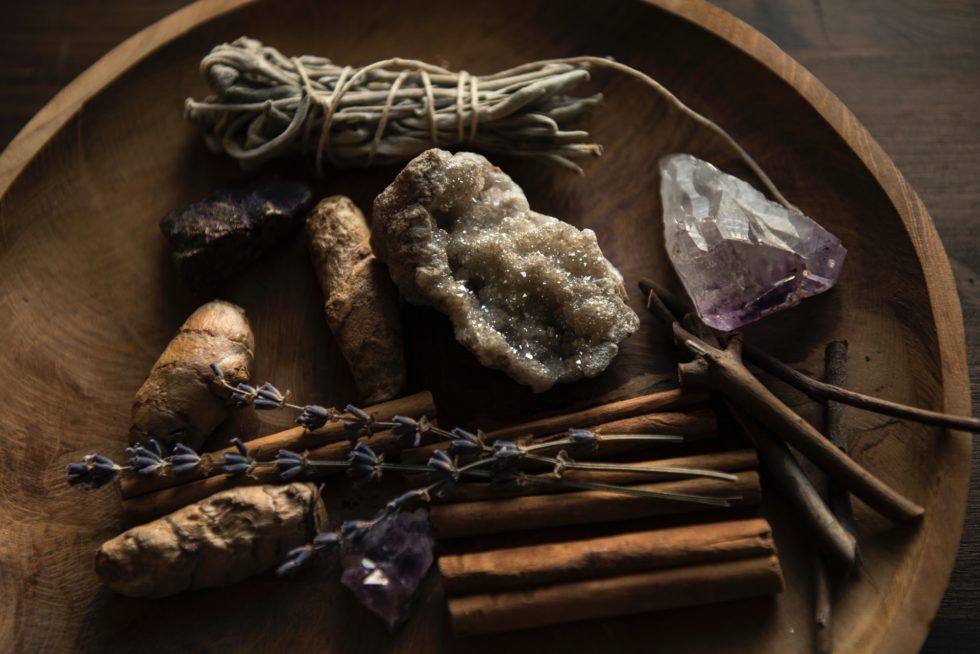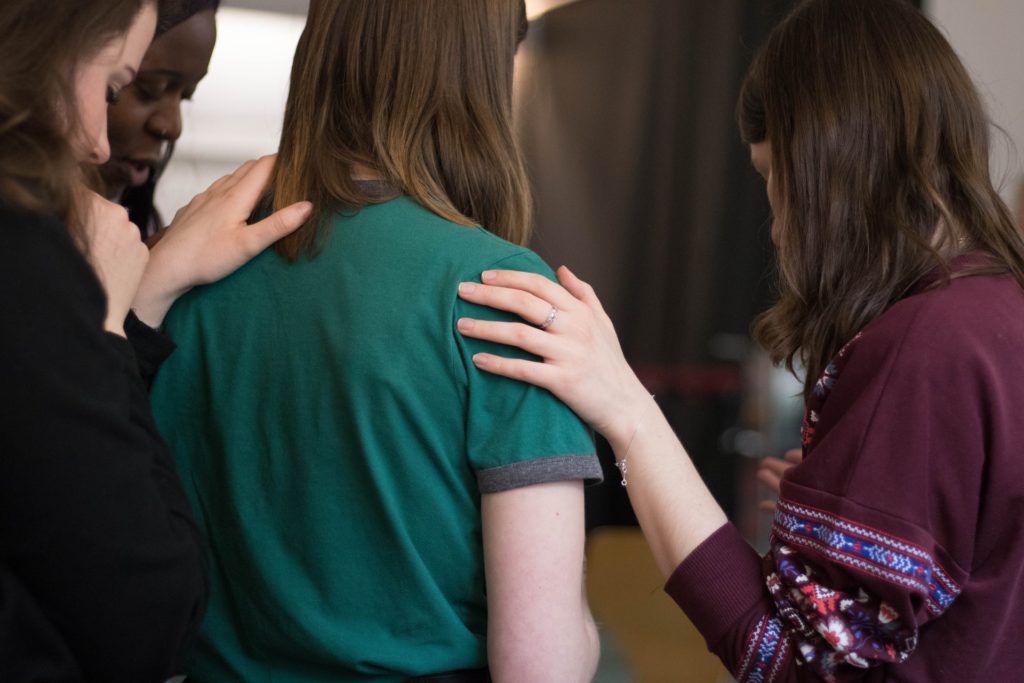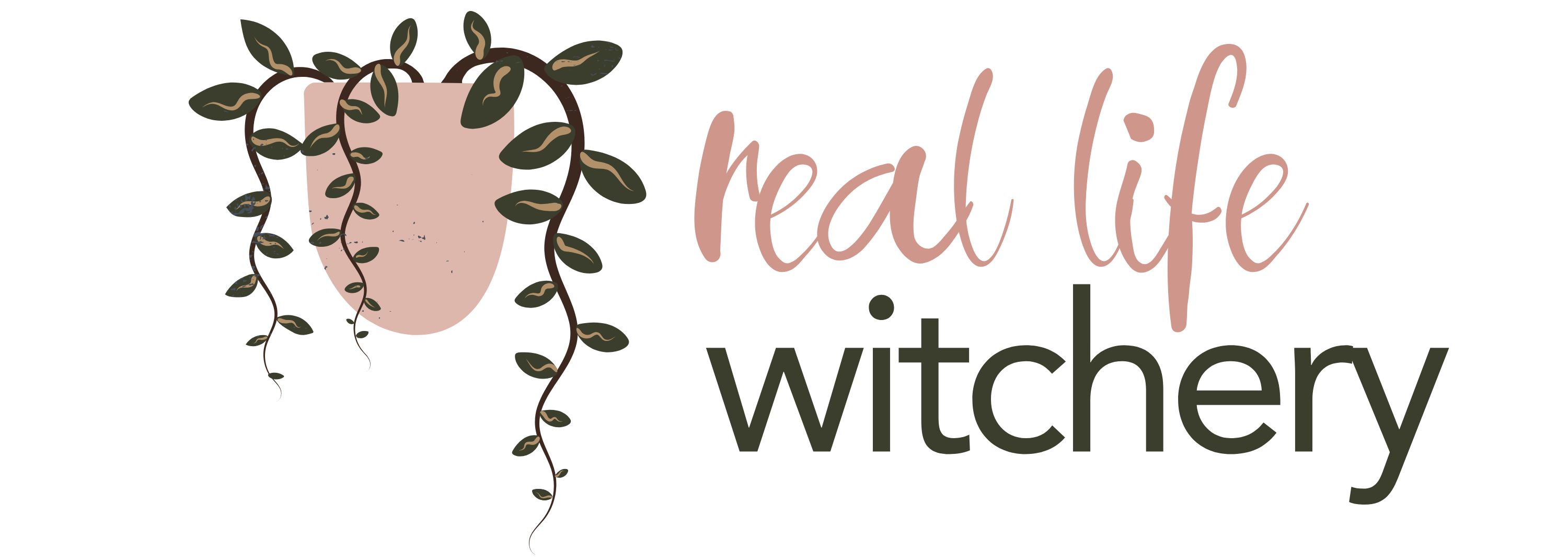
How To Become A Witch
You may be asking yourself – “how do I become a witch?” It may be easier than you think.
Anyone can become a witch with enough time, will and energy. Creating a meaningful, connected witchcraft practice isn’t something that will happen overnight.
There are many simple practices that are popular and easy – think moon water, charged crystals, simmer pots- but without the knowledge, intention and energy behind these practices, they can seem very shallow.
How to get into witchcraft
Every witch has their own story. It might be a book, a friend, a video, movie or even a piece of music, but there’s always something that sparks interest in the mysteries. Once sparked, it’s usually pretty easy to tend the flame. A new witch is confronted with a ton of information- and also misinformation, too. Books by known publishers usually are pretty reliable, but it’s always good to vet your sources. Anyone can self-publish, which doesn’t mean the authors information is unreliable, but ask friends who have been on the craft path awhile.
There is a ton of content out there ready for consumption, for any sort of witchy interest, and many online communities. One of the most important skills to learn is the skill of discernment, meaning recognizing good information from the bad. By studying witchcraft from a wide variety of sources, you’ll craft a sound “bullshit” meter when it comes to the sources you’re learning from.

What type of witch are you?
This is a question that we see often in many online communities. Usually a wide variety of responses follows: green witch, kitchen witch, hearth witch, hedge witch. You can read some explanations in this article, but there is no hurry to choose a “type,” if ever. The world of witchcraft is a world of exploration and never ending learning. There’s always something new to learn, experience and practice.
So, if something sounds interesting, explore it. Even if you decide to identify as one type or witch, it shouldn’t preclude you from looking into other types of witchcraft or other practices that you may feel drawn to. The only exception is closed practices, but I’ll go into that a little later.
Most practices are well, practical. There is passive magic that can cause subconscious shifts in your energy. Things like planting a garden can help connect you with the cycles of the earth, or noticing and tracking moon phases can align your energy with the moon cycle. These can really help when practicing more active magic. Active magic comes with the energy and intention put into these practices. It can turn the simple act of planting a tomato plant into a magickal act of infusing an intention into food that will grow into something that you will later eat.
Wicca vs. witchcraft
Wicca and witchcraft are two different, yet connected things. Witchcraft is a practice and Wicca is an orthopraxic religion. Everyone will define these terms in their own way, but this is how I define Wicca.
- Wiccans honor both the god and goddess
- They celebrate the eight sabbats- honoring the cycle of the sun
- Wiccans also celebrate the moon esbats
- They have a specific ritual structure and use specific ritual tools
- Hierarchical coven structure
Wicca started in the 1950s and continued on as a lineaged tradition. This means that every person who is part of Traditional Wicca was initiated by someone who was initiated by someone who was initiated by Gerald Gardner, the founder of Wicca. As the years have gone by, other “traditions” of Wicca have popped up, based on what is thought to be the original structure of Traditional Gardnerian Wicca. This can’t be confirmed, though as Traditional Wicca is oathbound, meaning no one speaks of coven-related information, including rituals and teachings.
Wicca was the beginning of the revival of magic and Pagan religion, now referred to as Neopagan religions. These include religious traditions like heathenry, druid paths, reconstructionists and paths based on ancient religions, ceremonial magicians, and others.
So what is witchcraft? Witchcraft, on the other hand, is a practice that can be applied to most religious paths. It’s what we think of when we talk of creating magick. Applying intention, will and energy to create change. Like meditation and prayer, you can practice witchcraft alongside whatever religious path or beliefs you follow.

Practicing witchcraft
The best way to begin your witchcraft practice is to just start. Sometimes it can feel intimidating to begin, like you should have a specific amount of knowledge before you allow yourself to try the actual work. I’m not saying that it’s a good idea to start summoning spirits on day one (it’s most definitely not!), but trying something like a candle magick spell is a solid way to begin.
Here’s the thing: you’re going to make mistakes. Messing up is how you learn, though. I can’t tell you how many times that I screwed up and learned the best lessons from it. Sometimes the lessons were a little difficult, but I really grew from them.
I always suggest starting with these four skills, because most magical acts build off of at least one of them.
“Good” witchcraft
One concept that comes up often is good vs bad witchcraft, or even white vs. black, which the community is really veering away from. But there is really is no such thing as good and bad witchcraft. For the most part, whether a magickal act is positive or negative is really just based on perspective.
For example, let’s say you are up for a promotion and do a candle spell to help you get it – and you do. From your perspective, it seems pretty harmless. But from a perspective of a colleague who did not get the promotion, it might seem like negative magick.
This is why most witches take into account the “law of return” or “law of three”. Boiled down, these “laws” mean you get what you put out. If you have poor intentions and commit bad acts, this energy will come back to you. This is what tends to help many witches stay on a positive path. The TV show “Charmed” created a magical rule for their universe about magick for “personal gain,” and that gained some traction for awhile, but as it was a made-up rule for a made-up universe, ended up fizzling out, though it still circulates as rumor sometimes.
Closed practices in witchcraft
It is important to avoid closed practices when you explore witchcraft. These are practices that are practiced by specific (and usually marginalized) cultures. Do not try to involve yourself in these practices if you are not being taught by someone within the culture. These practices may include indigenous practices, Voodoo, Santeria, and Hoodoo, as well as many others.
If you do feel drawn to one of these cultural practices, I suggest you seek out a current priest/ess or practitioner and see if options exist for you to take part in a respectful manner.

Joining a coven… or not.
Coven or group work can seem very tempting when you first start your practice. I mean, most covens that take on new practitioners do teach, but I always suggest at least six months to a year of studying on your own before seeking out a formal teacher or group.
Many groups will teach one set way of practicing, and some will even teach a set of beliefs that are expected to be adhered to. I’ve even heard of teachers telling their students that they aren’t allowed to read other books, or learn elsewhere, that all of the information must come from the coven. I don’t feel like that helps contribute to a good practice for anyone.
That being said, when coven work is done well, it’s a very different experience when compared to solitary work. Raising energy in a group, as a group is something very tangible and I feel blessed that I’ve been able to be part of a coven with diverse views and personal practices. It allows us to learn from one another and try new things, along with supporting each other on our paths. If you do want to consider group work, there are several places online you can find like-minded witches.
Becoming a witch may seem easy – like everyone is doing it, but to build a deep and meaningful practice, there are several things to consider. Explore everything, learn terminology so you can be respectful of the communities that you may choose to join. And above all, do the Thing. Make that moon water and infuse it with your intention. Cleanse your crystals before charging them under the moon. Learn the difference between cleansing, blessing and charging. Get curious- do research. And may the path you choose align with your True Self.




Add A Comment